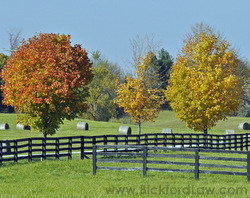Spouse's Separate Property
 San Diego family law attorneys are familiar two seminal family law cases – Pereira and Van Camp. Both of these cases involve a community claim in a separate property business. During marriage, all earnings and accumulations of the parties are considered community property and will be divided equally upon divorce. All property acquired prior to marriage, after separation, or during marriage by devise, bequest, or gift is separate property and will be confirmed as such. Pereira and Van Camp provide the two most common ways to determine the community’s interest, if any, in a separate property business.
San Diego family law attorneys are familiar two seminal family law cases – Pereira and Van Camp. Both of these cases involve a community claim in a separate property business. During marriage, all earnings and accumulations of the parties are considered community property and will be divided equally upon divorce. All property acquired prior to marriage, after separation, or during marriage by devise, bequest, or gift is separate property and will be confirmed as such. Pereira and Van Camp provide the two most common ways to determine the community’s interest, if any, in a separate property business.
This issue arises if one spouse owns a business prior to marriage but continues to work in that business during marriage. As all earnings of a spouse are community property, the community would be jilted if it weren’t somehow compensated for an increase in value of the separate property business or the spouse’s services to the separate property business.
What happens if a spouse spends a significant amount of time cultivating a separate property asset, but that asset is not a business? Less often discussed and litigated is the issue of whether the community should be compensated if a spouse expends time and effort managing separate property assets. Two specific examples have been discussed by California courts: (1) separate property stock portfolios and (2) separate property investment properties.
Stock Portfolios
If a spouse owns a significant separate property stock portfolio it will generally be confirmed to him or her in full upon divorce. However, should the community be compensated in any way if the spouse spent a significant amount of time enhancing the value of the portfolio during marriage? In a 1963 California case, the court found that the community was not entitled to an interest in Husband’s separate property stock portfolio because it increased in accordance with the Dow Jones average. Further, the court relied on the fact that Wife did not show that Husband had any special ability or skill with regard to stock portfolios. This case seems to imply that if the stock portfolio had exceeded the average increase or that Husband was a professional trader, the community might have been entitled to an interest in the separate property asset.
Investment Properties
 In a 1947 case, a California court heard Wife’s request for a community interest in Husband’s separate property real estate on the basis Husband fully and Wife partially employed themselves in maintenance of the property. The court denied her request because she did not introduce any evidence regarding what Husband could have earned doing the same job somewhere else. Further, Wife did not present any evidence that the amount of money Husband would have earned at that hypothetical position was not expended already for the support of the community. Presumably, as both parties were employed by Husband’s separate property, Husband paid community expenses throughout marriage with the income from his separate property.
In a 1947 case, a California court heard Wife’s request for a community interest in Husband’s separate property real estate on the basis Husband fully and Wife partially employed themselves in maintenance of the property. The court denied her request because she did not introduce any evidence regarding what Husband could have earned doing the same job somewhere else. Further, Wife did not present any evidence that the amount of money Husband would have earned at that hypothetical position was not expended already for the support of the community. Presumably, as both parties were employed by Husband’s separate property, Husband paid community expenses throughout marriage with the income from his separate property.
Based on review of these lesser cited California cases, it appears that the community may be able to claim an interest in a spouse’s separate property. However, although courts are willing to entertain those claims, they are not easily granted.
Please contact us if you are considering divorce and are concerned about your estate. Nancy J. Bickford is the only attorney in San Diego County representing clients in divorces, who is a Certified Family Law Specialist (CFLS) and who is actively licensed as a Certified Public Accountant (CPA). Don't settle for less when determining your rights. Call 858-793-8884 for more information about the consultation process.
 San Diego Divorce Lawyers Bickford Blado & Botros Home
San Diego Divorce Lawyers Bickford Blado & Botros Home



